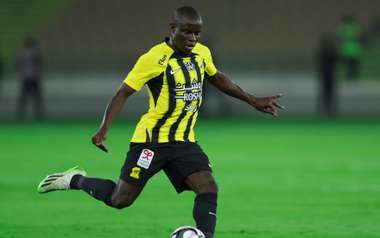From Ronaldo to Kanté and Fabinho: How the Global Schedule Is Redefining European Football
10 November 2025

The global calendar challenges European hegemony
In football, stories never truly end; just when people think the saga has reached its finale, new chapters begin, and the plot thickens with fresh chapters on foreign soil. The Saudi project, long deemed a retirement plan by some pundits, has instead become a living case study in reinvention.
As rumors of a move to the Saudi Pro League circulated, many framed it as a final curtain call. But seasons have a way of rewriting endings, and the most surprising plot twist has been the quality and ambition unfolding north of the equator as much as south of it.
European voices—ranging from analysts to legendary coaches—initially questioned the shift. Jurgen Klopp spoke of a threat to balance, Ronald Koeman warned that players could fade internationally after crossing the continental divide, and Toni Kroos called it a decision against the sport. Yet the story did not close with those critiques; it opened a broader conversation about excellence, adaptation, and what “elite” really means in a global game.
Saudi spark, European doubts, and a new elite order
What followed was not the obituary some predicted. The Saudi leagues built modern venues, cultivated a competitive atmosphere, and harnessed a large, passionate fanbase, turning the skepticism into a platform for proving the opposite of what the critics claimed. The narrative shifted from “why?” to “how,” as players demonstrated they could compete—and thrive—within a new framework that prizes intensity, cohesion, and tactical nuance.
Two players at the heart of this transformation—N’Golo Kanté and Fabinho—re-emerged not as faded relics but as potent architects of their teams’ defenses and tempo. Kanté, whose field intelligence and relentless work rate have long been his calling card, returns to the France squad after a run of standout showings in midfield. Fabinho, too, reclaims his best form, reminding the world that “international” is not a one-way street but a two-way bridge between leagues and national teams. The duo’s resurgence underscored a fundamental truth: professional growth is not bound by borders; it is fueled by challenge, discipline, and the right environment.
The Saudi league benefitted from these re-energized performances, with clubs pushing hard for domestic titles while players showed renewed commitment to their national teams. Ronaldo’s ongoing impact at Al Nassr remains a focal point of the broader renaissance: not merely aging gracefully, but redefining leadership and influence well into what many predicted would be a twilight phase for his career. His continued scoring, his leadership on and off the pitch, and his influence on younger players have helped illuminate a pathway that says a league in a far corner of the world can become a global launchpad.
The broader implication is clear: the football world is more interconnected than ever, and the Saudi experiment is not a detour but a route to broader competitiveness. The league’s growth has produced a ripple effect—fans travel, sponsors invest, and players recalibrate their career plans. It is a reminder that the game’s currency is not just trophies but opportunities: to prove oneself, to teach others, and to extend a career with new chapters to write.
In this emergent era, Kanté and Fabinho have become emblematic figures of a wider truth: top players can excel anywhere when given the right stage, the right teammates, and a relentless drive to be the best. Ronaldo’s continued excellence and Portugal’s ambitions reinforce the message that age is a number, not a verdict; performance can transcend leagues when the environment is conducive to growth.
The November window, with France preparing for crucial qualifiers in Europe and Brazil eyeing friendlies that test depth and identity, illustrates how the calendar now circulates around more than traditional powerhouses. For Saudi Arabia, the pattern is simple: if you build it, they will come—and then they’ll stay long enough to rewrite the rules of the game. The international schedule is no longer a one-way street but a dynamic circuit where East and West meet in a shared pursuit of excellence.
Ultimately, the Saudi project is not about replacing Europe; it is about expanding the game’s horizon, proving that top-tier football can flourish across continents. The next chapters will test consistency, adaptability, and the enduring appeal of competition on a global stage. And if the weather gods permit, the stadiums will fill, the narratives will deepen, and the critics might finally admit: the calendar, when used well, can be merciless to those who underestimate the power of a well-timed pivot.




